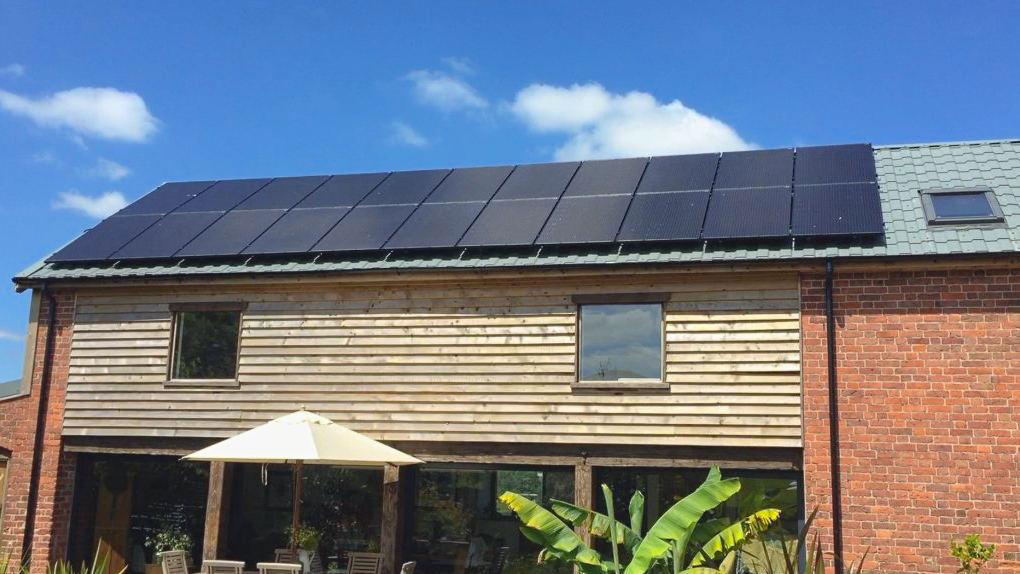As air source heat pump owners, the running costs of our central heating system are based on the price of electricity. For us, the sweet spot as a tariff is 15p/kWh to make it cheaper to run than kerosene which typically averages around 50p per litre.
Last year at this time we were paying 11p/kWh of electricity which made our heat pump very affordable to run. In February, we started to notice that electricity tariffs were slowly edging up, and I posted an article expressing our fears surrounding running costs if electricity tariffs pushed up 17p/kWh. Little did I know back then that 10 months later the UK would be plunged into an energy crisis with tariffs exceeding 20p/kWh.
Our supplier (Symbio) was one of many that went bust this autumn and winter and our account was transferred to E.ON Next. We received several emails from E.ON updating us on the progress of shifting our account, and the very first email we received informed us that we would be placed on their default Next Flex tariff at 23.17p/kWh with a standing charge of 28.04p per day.
In the very same email they wrote, “If you set up a Direct Debit, you’ll benefit from lower prices than shown here.” We waited for a few more weeks before we could create an account on the portal, and set up our direct debit as suggested. We then received another email, “Remember: you’ll benefit from lower prices if you pay by Direct Debit, and it’s quick and easy to set up in your online account.”
We patiently waited for the transfer process to run its course and we signed into the portal. The direct debit had been successfully set up, our balance from the previous provider had been carried over, but our tariff remained unchanged. It was still 23.17p/kWh with a standing charge of 28.04p per day.
We sent an email to their complaint’s department and didn’t hear back from them, so we called the call centre. After being kept in a queue for an eternity, we finally got through to an agent.
I explained to them our tariff hadn’t changed when we switched over to direct debit and, as suspected, I could sense an uneasiness from the agent who hit me with a barrage of scripted questions. How did you apply for the direct debit? When did you apply? Did you eat before applying for the direct debit?
Five minutes later, the agent told me that the issue occurred because we applied for our direct debit online via the portal and the system isn’t automated to deduct and adjust the tariff accordingly. So much for “it’s quick and easy to set up in your online account.”
Online systems are built to automate processes like this and the fact that our tariff wasn’t automated to reduce after the system clicked over to direct debit is ridiculous and it is clearly setup in this manner to overcharge people that are not paying attention to their tariffs and rates.
A couple of keystrokes later, our rate was reduced and reflected immediately on the portal. The standing charge is now in line with the direct debit, variable tariff cap. The tariff, however, is still 1p over by our reckoning.
When I questioned this, the agent said that’s the lowest rate they can offer. We sent another email of complaint, and have received a reply that the tariff is correct, which we still dispute. We’ll see if we get an answer in the days ahead.
To check what your cap amount is for where you live (this is valid from October 2021 to April 2022) please refer to this link then compare it to what you’re being charged by your provider.
The obvious issue here is that E.ON might be relying on homeowners to not notice that tariffs are not amended automatically, and it’s an easy way to make some extra money at a time when electricity providers are stretched. But there are rules and regulations in place, and it’s going to be a very tough winter financially for many households in the UK, especially for those that are running heat pumps to heat their properties, so every little saving will help.
If you’ve been switched recently, make sure that the tariff that you’re on does not exceed the cap. While this article is primarily about electricity tariffs and the potential impact on heat pump owners, the same will apply to your gas tariff, so please double and triple check this, because it could save you money this winter.
